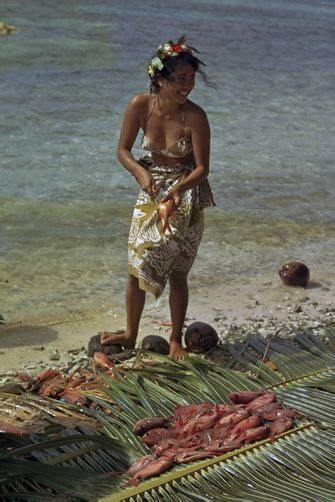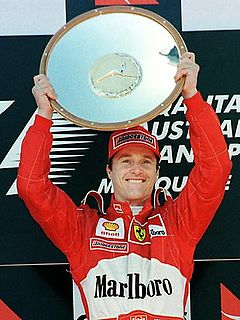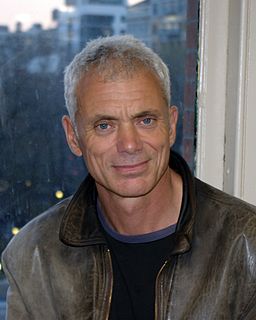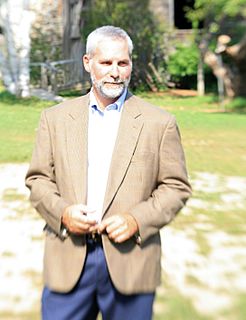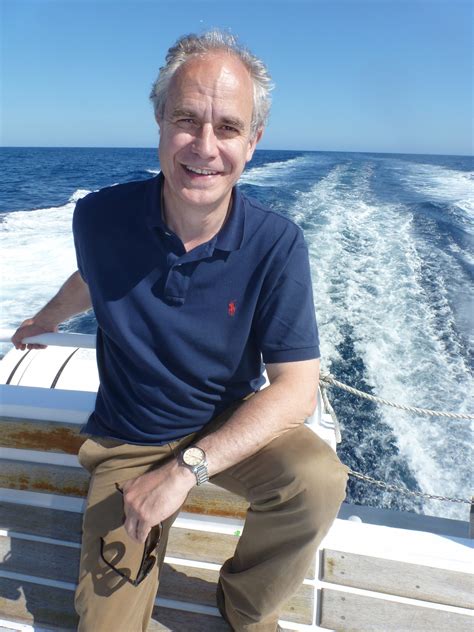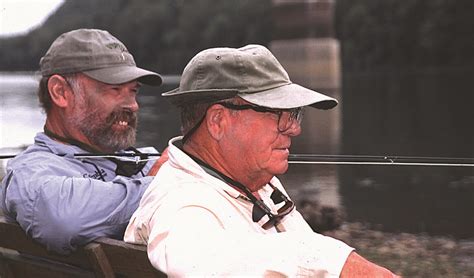A Quote by Luis Marden
On a boat cruising down east, sardines are scooped out of the holding seine at Eastport at dawn. 'Sardines' may be any of several species of fish; in Maine they are usually small herring. Fish are penned in nets until the boats are ready to load. The fish are taken a short distance to canneries which work round the clock, according to the time of the catch.
Related Quotes
So, eventually, he made one final arrangement with himself, which he has religiously held to ever since, and that was to count each fish that he caught as ten, and to assume ten to begin with. For example, if he did not catch any fish at all, then he said he had caught ten fish - you could never catch less than ten fish by his system; that was the foundation of it. Then, if by any chance he really did catch one fish, he called it twenty, while two fish would count thirty, three forty, and so on.
I am almost certain fishermen posess a peculiar bend to their makeup. Fisherman are optimists, and the fish in the future is always preferable to the fish at hand. Even the best fishermen catch fish only a small percentage of the time, which means we persevere in a sport that features failure as its main ingredient. Truly great days, when the fish hammer the fly as soon as it lands on the water are rare.
The process could be likened to relaxing on a riverbank and watching a fish leap out of the water, sparkle for a moment in the sunlight, then dive back in a graceful arc. There is no need to engage in a mental dialogue about the merits and demerits of the fish, emotionally react to the fish, or jump into the water to try to catch the fish. Once the fish is out of sight, it should also be out of mind.
Now when Nile perch was introduced [into Lake Victoria], I don't think enough research was done; maybe it was done, maybe it was not. But Nile perch is a huge fish. So it ate all the little fish, and it grew into a monster which the local people could not fish with their little boats and their little nets.
Increasingly, we will be faced with a choice: whether to keep the oceans for wild fish or farmed fish. Farming domesticated species in close proximity with wild fish will mean that domesticated fish always win. Nobody in the world of policy appears to be asking what is best for society, wild fish or farmed fish. And what sort of farmed fish, anyway? Were this question to be asked, and answered honestly, we might find that our interests lay in prioritizing wild fish and making their ecosystems more productive by leaving them alone enough of the time.
Nile perch are enormous but lethargic fish, easy to catch once they have taken your bait. Some are bright golden yellow, some grey pink with the large, round surprised eyes of all fish, in which we humans cannot read any expression of pain or suffering, so that, as with insects or mollusks, we feel absolved of their deaths.
Anglers who see fish exceptionally well can fish successfully in less productive water than anglers who don't. Fishermen love equipment and are always looking for mechanical advantages, but there is nothing to compare with learning to see well; if you see well enough, you can walk out in the mud with no boat and catch fish.
Allowing the fly to sink to the fish's level, the angler makes a retrieve. The fly comes directly at the fish, which suddenly sees its approach. As the small fly get nearer, the fish moves forward to strike, but the tiny fly doesn't flee at the sight of the predator. Instead it continues to come directly toward the fish. Suddenly the fish realizes intuitively that something is wrong(its never happened before), so it flees until it can assess the situation. An opportunity for the angler has been lost.
[Writing is like fishing]. You don't bow because you made the fish. That's the difference. If you know that, then you bow for your labor.You crafted, you worked, you put in those hours so that you could catch that fish. But you didn't make that fish. You just caught the fish. That will help you stay humble and bow for the right reason and be very lucid about the work you do.
